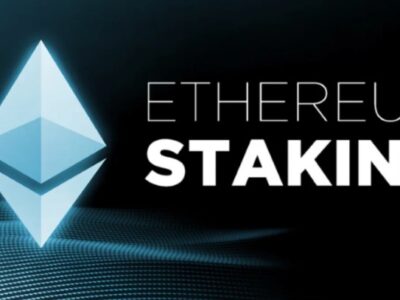Suppose you want to get acquainted (gain, obtain) with present-day techniques that came from Ethereum Coding. RPC includes the functions, operations, and data on which the structure and program of the Ethereum forms.
You can also read: Do not send eth directly to an Ethereum contract
What is Ethereum JSON RPC?
JSON is one of the best data transfer formats between different systems. Each encryption is a string of code with predefined values and valid data that can be used between two approaches to sending information.
Jason RPC is also a protocol-calling process that can define structure, architecture, and rules in the process. This type of call process is performed over HTTP to be sent through it with RFC 4627 standard. Let’s define CPP Ethereum and Go Ethereum.
CPP- Ethereum
There are three types of Ethereum clients. The first is CPP, the second is geth, and the third is parity. Users can use this standard in a wide range of operating systems and hardware to formally send and receive data.
Go Ethereum
In addition to the C ++ and Python programming languages, Go Ethereum is one of the main applications for implementing the Ethereum protocol in the GO language. This program is entirely open-source and works under the third version of GNU LGPL. Go Ethereum can be used as a standalone client such as geth or installed on the operating system or as a standard library in GO or Android and iOS operating systems.
Geth can also be used on the Ethereum blockchain as a node to extract ether tokens or on an Ethereum virtual machine.
Explaining RPC Methods
Ethereum EPI RPC uses a namespace system. RPC processes fall into different categories based on their application. The name of each method makes of the namespace, an underscore, and the exact name of the process. For example, eth_callback is a type of process in the namespace.
Each process has a specific execution method, and first, it applies on Ethereum and receives data. The virtual machine then operates on it and returns the function response to be returned to the Ethereum network.
Ethereum clients currently support over 65 processes. The main categories of these processes are seen below:
Block Data
This type of repentance can call static data from any block in the blockchain. The data is contained in the headers of each blockchain. It contains information such as the transactions extracted or the block number.
- eth_getBlockByHash:You call this process and returns block based on its hash
- eth_blockNumber: This method returns the current block number
- eth_getBlockByNumber This method also calls the block with its number
Per-User (address) Data
In this process, static address state data restores, regardless of whether the address belongs to the user or a smart contract. Each address can contain some ETH.
eth_getTransactionCount: This method redirects the address. For example, if you want to know how many transactions per user or each address extracts, you can use this function.
Smart Contract Data
- eth_getStorageAt: returns state storage raw from smart contracts
- eth_call: retrieves a constant EVM method on a Smart Contract and is the primary way to retrieve already mined data from the blockchain about a particular smart contract.
It is possible to restore the general information of a smart contract and the process of the Ethereum virtual machine on a smart contract with this function.
Other methods such as eth_getLogs, eth_getCode can also be used to interact with smart contracts.
ERC20- A Standard
The ERC 20 standard was the first process to implements on Ethereum tokens. According to this standard, users can easily create any Ethereum token. The ERC 20 standard is a universal language used by Ethereum Blockchain to allow other tokens to interact and become one another. The world’s most famous cryptocurrency and blockchain, Ethereum, is based on a general standard for buying, selling, or trading tokens.
Within this standard, an ERC20 (Ethereum Request for Comments) token implements the following functions:
- function totalSupply () -public constant returns (uint); – This function returns the total number of tokens made to the ERC 20 standard
- function transfer (address to, uint tokens) -public returns (bool success); -This function shows the number of tokens that transfers from one source to another
- function balanceOf (address tokenOwner) -public constant returns (uint balanceShows the number of tokens that belong to an account at an address.
- function transferFrom (address from, address to, token uint) – public returns (bool success); Through this function, tokens can be transferred from one user to another
- function allowance (address tokenOwner, address spender) – public constant returns (uint remaining) – Checks a user’s minimum assets to start a transaction.
- function approve (address spender, uint tokens) – public returns (bool success);This function examines the possibility of a transaction by examining the total number of tokens of a user.
The functions we mentioned in this section are essential, but there are 18 other types of rules in RPGs called tokens, symbols, and numbers.
According to the global RC 20 standard, tokens can be automatically placed in a digital wallet or a transaction at the time of creation. This method can simplify the making of tokens many times over, so the second generation Ethereum blockchain works much better and better than the bitcoin blockchain.
Conclusion
If you want to start developing Ethereum code, you must first get acquainted with its standards and types of RPC. You’ll even need an RPC to build a smart Ethereum contract, which of course, helps the JSON RPC standard allow any developer to code on different systems and platforms and send and receive data.


